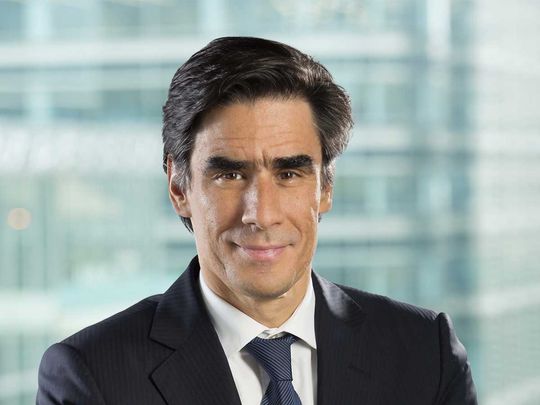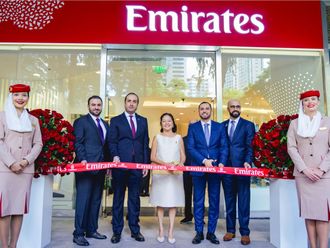
As HSBC Holdings Plc's top executives lined up last month to publicly welcome the appointment of Georges Elhedery as the bank's next chief executive officer, one prominent voice was notably absent from the social media celebrations: Nuno Matos.
His disappointment was understandable. Having reached the final round of the appointment process to replace Noel Quinn as CEO, HSBC's head of wealth and personal banking was passed over for the role by the board in favour of the lender's chief financial officer, Elhedery. Now Matos is leaving Europe’s largest bank.
Those who have worked with the two men said that whoever missed out on the job was unlikely to stay much longer. One person familiar with the situation said it was obvious to senior colleagues that the two didn’t get along and that the unsuccessful candidate would leave shortly thereafter.
With Matos’ departure, HSBC's loss could soon become a rival lender's gain as he potentially becomes one of the world’s most sought-after bank CEO candidates.
“He is a pedigreed manager with strong international experience, who I am sure would be a good fit at a major wealth manager,” said Joseph Dickerson, head of European banks research at Jefferies in London.
During his nine years at the London-listed bank, Matos rapidly rose up the ranks to eventually head wealth and private banking, the largest division that accounted for about 40% of group revenues. Under his leadership, the unit’s pre-tax profit more than tripled to $11.5 billion in 2023. The Portuguese native's earlier roles included leading retail businesses at HSBC and Banco Santander SA.
However, any successful recruiter may have to wait until next year to secure Matos for his next role, as he will remain with HSBC in an advisory capacity through 2024, followed by a period of gardening leave. Matos, 56, declined to comment for this story when contacted by phone and did not respond to a separate text message seeking comment. HSBC also declined to comment.
“I’ve decided that this is the right time for me to embrace new opportunities,” Matos said in a memo to staff, noting he plans to use “the experiences I have had, and the relationships I’ve built here, and will carry them with me as I move forward.”
Matos and Elhedery present a study in contrasts. Their differing management styles were evident to HSBC employees during the months-long CEO selection process.
While Elhedery was low-key—the Lebanese-born banker doesn’t even have a LinkedIn profile—Matos at times appeared to be running a quasi-presidential campaign for the job. In one LinkedIn post from May, he was pictured at a company event in India, dressed in black, bathed in red light against a backdrop of flaming torches.
They also differ in their personal approaches. Elhedery is seen as collegial and collaborative, while Matos has a reputation for being more direct, according to people familiar with both men, who asked not to be identified discussing the executives and internal matters.
Even back in 2021, Matos was making a strong case for the CEO role. That year, he uprooted his family and moved to Hong Kong as HSBC shifted much of the bank's senior management to its most important market. After relocating to the former British colony, he quickly embraced and adapted to life in the vibrant southern Chinese city.
In recent years, Matos has also been at the centre of the bank's strategy to continue its pivot towards Asia, including working on several of the company’s bolt-on acquisitions of wealth and insurance businesses in the region. During his tenure, the bank acquired wealth operations in India and Singapore and recently completed the takeover of Citigroup Inc.’s retail wealth portfolio in China.
Such moves make Matos one of the few executives with the pedigree of working at a large, systemically important bank in the fast-growing Asia region, making him well-suited to take on a role at similarly-focused rivals, including Standard Chartered Plc. A number of other global banks—from UBS Group AG to Citigroup—have also long expressed plans to bolster their wealth business in Asia.
Matos also spearheaded a drive to challenge fintech rivals in the retail foreign-exchange market with the launch earlier this year of Zing, an FX platform open to non-HSBC customers.
One client who dealt with Matos described him as a jargon-averse straight shooter who gained respect by building the bank’s wealth business.
“He’d been given quite a lot of airtime externally with the market, and you tend to only give that to people you trust,” said Benjamin Toms, an analyst at RBC Capital Markets. “I wouldn’t be surprised if he turned up at another European bank somewhere.”












